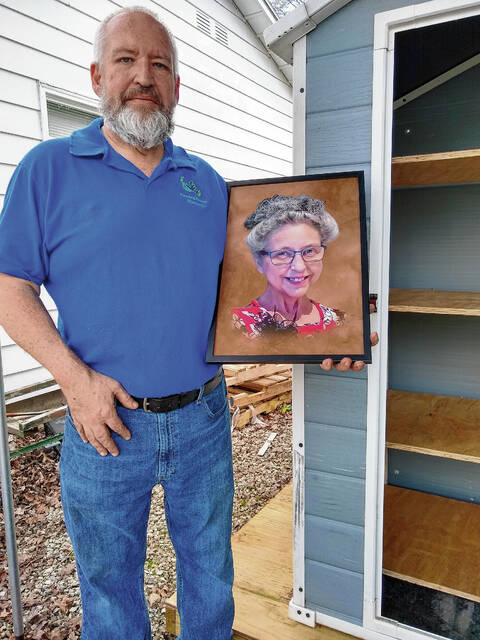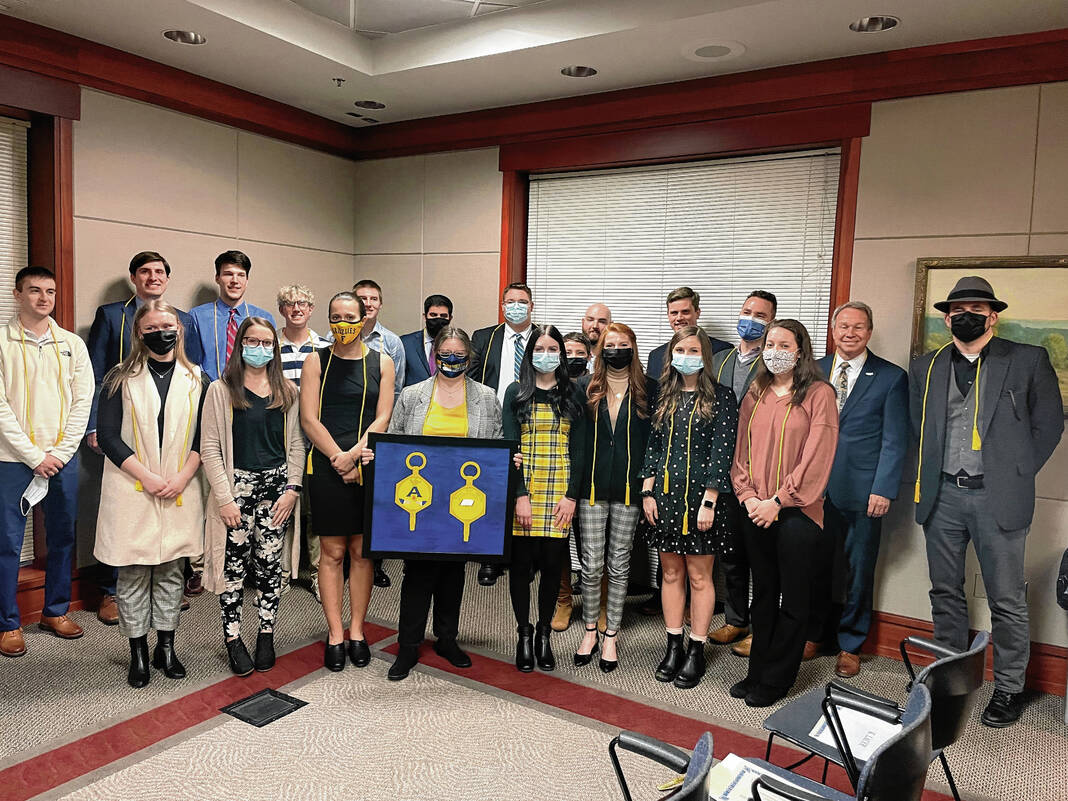It is more convenient for older teens and young adults from low-income families to earn a high school diploma and find a job due to changes in the Atterbury Job Corps program.
Bartholomew and Johnson county residents are now able to attend classes without having to reside on campus, said Aleisha Hennsley, Atterbury Job Corps admissions counselor.
That removes what had been an obstacle.
The old residential requirement kept many Columbus residents from participating because they wanted the freedom to go home at the end of the day, said Jeff Byrd, Atterbury Job Corps business liaison.
[sc:text-divider text-divider-title=”Story continues below gallery” ]
Byrd said he hopes the change will increase awareness of the Job Corps program and participation in it.
“The local community either doesn’t know that we are here or doesn’t quite understand what we do,” Byrd said.
Daniel Heilman, 24, of Edinburgh, does, however.
Heilman is the first student to participate in the new non-residential program.
Having grown up in Florida, he moved to Edinburgh and joined the Job Corps to increase his earning potential.
“I want to expand my horizons as much as possible,” Heilman said. “My goal is to get a good career. I’m 24 now and I needed a career at 18.”
Heilman is enrolled in the heavy equipment operator and mechanics program.
He plans to receive his certification in at least three specific pieces of equipment. All students in the program receive a forklift certification as well.
Job Corps benefits
The Job Corps is a free education and training program administered by the U.S. Department of Labor.Atterbury Job Corps is one of the six original job centers that began the national program in 1964. Today, 123 centers operate throughout the United States.
Besides a free education, Byrd said Job Corps perks include three meals per day, housing, bi-weekly student pay, health and wellness benefits and transportation assistance.
These benefits are available to all Job Corps students, whether they are residential or non-residential participants, he said.
Academically, students can obtain a high school diploma or high school equivalency as they learn trade skills in 14 different career areas, all with nationally recognized certifications, Hennsley said.
That includes certified nursing assistant, brick laying, heavy equipment operator, culinary arts, welding, security and office administration. Students can even take driver’s education training and earn their driver’s license on campus, Hennsley said.
In action
SaVantra Smith, 20, of South Bend, is one of the students who earned his driver’s license while in the program. He has nearly completed his Cement Masonry Pre-Apprenticeship, the primary reason he chose to enroll in the Job Corps.“I made a promise to my mom three years ago when I graduated high school that I would build her a house,” Smith said. “You have to start somewhere, and that is the foundation,”
Smith hopes to finish his education and complete his promise before his mom turns 45. She is now 37.
He seems to be on track as he is mostly done with his pre-apprenticeship and will leave for an advanced training program July 14 in Texas, also through the Job Corps.
“It’s free. You can’t go wrong with the opportunities here,” Smith said.
The Atterbury campus has capacity for 410 Job Corps students. New students begin the program each week as others complete it, Hennsley said.
Byrd and others are in the process of meeting with local high schools to discuss co-enrollment opportunities, similar to the Columbus-based C4 program, where students would attend half a day at the Job Corps and half the day at their high school.
The Job Corps also works with employers and creates internships, job opportunities and knowledge of what skills employers are looking for, Byrd said.
“Rather than teach some antiquated curriculum that we think should be taught, we work closely with employers to find out what they need from employees, to make sure what we are teaching them is relevant,” Byrd said.
Upon graduation, former students then receive help in finding housing.
The goal of Job Corps is to help a person become independent, able to take care of themselves, pay their own bills and contribute to society, Byrd said.
[sc:pullout-title pullout-title=”For more information” ][sc:pullout-text-begin]
People interested in learning more about the Atterbury Job Corps program, or signing up, can contact Aleisha Hennsley at 812-314-6246. They can also call a toll-free hotline at 1-800-733-5627 or visit recruiting.jobcorps.gov.
Free tours of the campus are offered at 11 a.m. every Wednesday with no appointment necessary. Prospects who are interested should meet at the Welcome Center.
[sc:pullout-text-end]
















